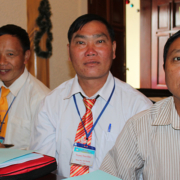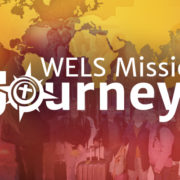Impactful relationships
Depending on how you count, Hindus, Muslims, and Sikhs make up about 10-20% of the population of the Greater Toronto area. That’s almost two million people! That percentage is even higher in Mississauga, which has a particularly high population of Muslims. As you can imagine, they are a very difficult population to reach with the good news of Jesus. They don’t respond to typical evangelism programs, law/gospel presentations, etc. They are conditioned to be polite but skeptical of Christians, expecting them to “just try to convert them.”
That is because, much like many Christians in the West, our affluent and entertainment-saturated culture has caused many austere believers in Islam or Hinduism to soften their beliefs into simply “cultural” faith. That means they don’t believe much of what their religions teach, but they also don’t want to convert to Christianity because to them Christianity is a culture, not a religion. Becoming a Christian doesn’t mean believing in Jesus as much as it means to stop being Saudi, Iranian, Pakistani, Indian, etc., and become Western/Canadian. Therefore, we cannot bring them to Jesus with simple presentations of the gospel. They see that as close to racism against their culture. Our only chance is long-term relationship investment.
That’s what is happening with Priyanka. Her name is changed, and she isn’t pictured to hide her identity. She is an immigrant from Bangladesh whose husband cheated on her, left her, but because of their culture and religious background, still “owns” her in a sense. Her fear of him is why her identity is hidden. And yet, despite all that, her culture makes it very hard for her to accept that Christianity may have something to offer her.
My wife has been regularly meeting her to take her to the doctor, have her over to make Biryani (a Bangladeshi staple) together, take her grocery shopping, or just keep her company. She is naturally resistant to Christianity, but after almost two years of meeting with her, she agreed to receive a Bible in Bangla, her native tongue, and has come to our house once for a Bible study. She is not a Christian yet, but this is the kind of long-term work that allows people from these cultures and religions to even listen to the gospel.

Missionary Caleb Schultz and his wife Johannah
But this is not limited to people of Middle Eastern or South Asian background. This is becoming more and more true of the non-immigrant population as well. Those who grew up in a Christian culture are also increasingly seeing the church as a social/culture club where people try to get you to behave differently. This has moved our congregation to a model of relationally expensive outreach. Investing in people over time, not to convert them, but just because Jesus loves them. That means expecting that it will take years in some cases for people to know Jesus. But in the end, those people will know a Jesus who didn’t just give them a set of beliefs or culture, but brought them into his life through his body, the Church.
You can do this too. Many white people are intimidated to engage immigrant populations (I was too!), but they really ought not to be. Invite them over for dinner. Ask them about their culture or homeland. Be the type of person they want to call first when something goes wrong in their life, because inevitably something will, and you will have an answer (Jesus!) that is far better than any other.
Pray for this woman and us as we try to reach the many people groups of our city.
Written by Rev. Caleb Schultz, home missionary at, Cross of Life, Mississauga, Ontario, Canada
WELS Missions
Learn about the ministry work of WELS Missions.
SUPPORT MISSIONS
Support the ministry work of WELS Missions.






